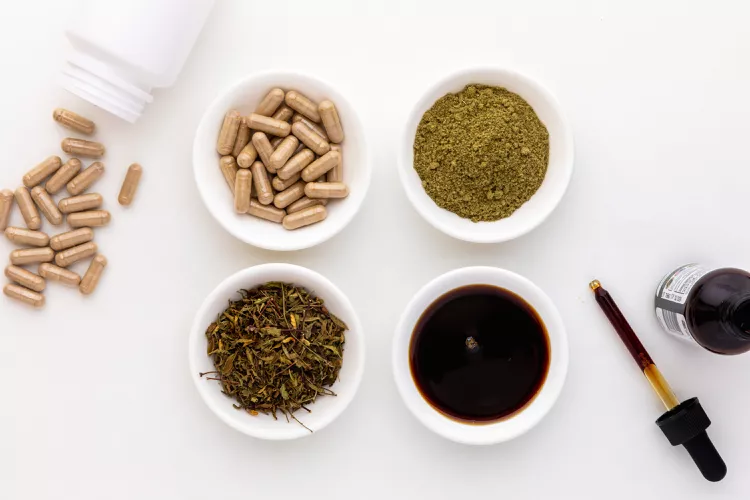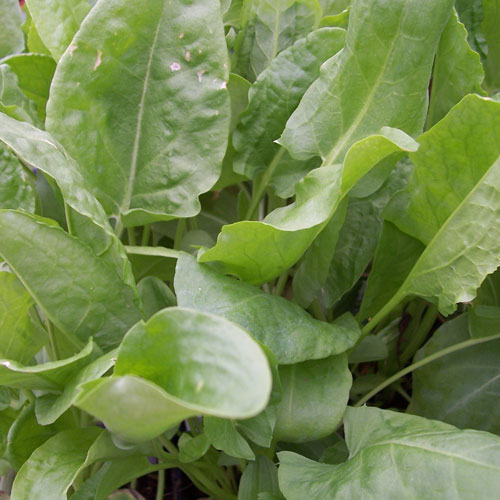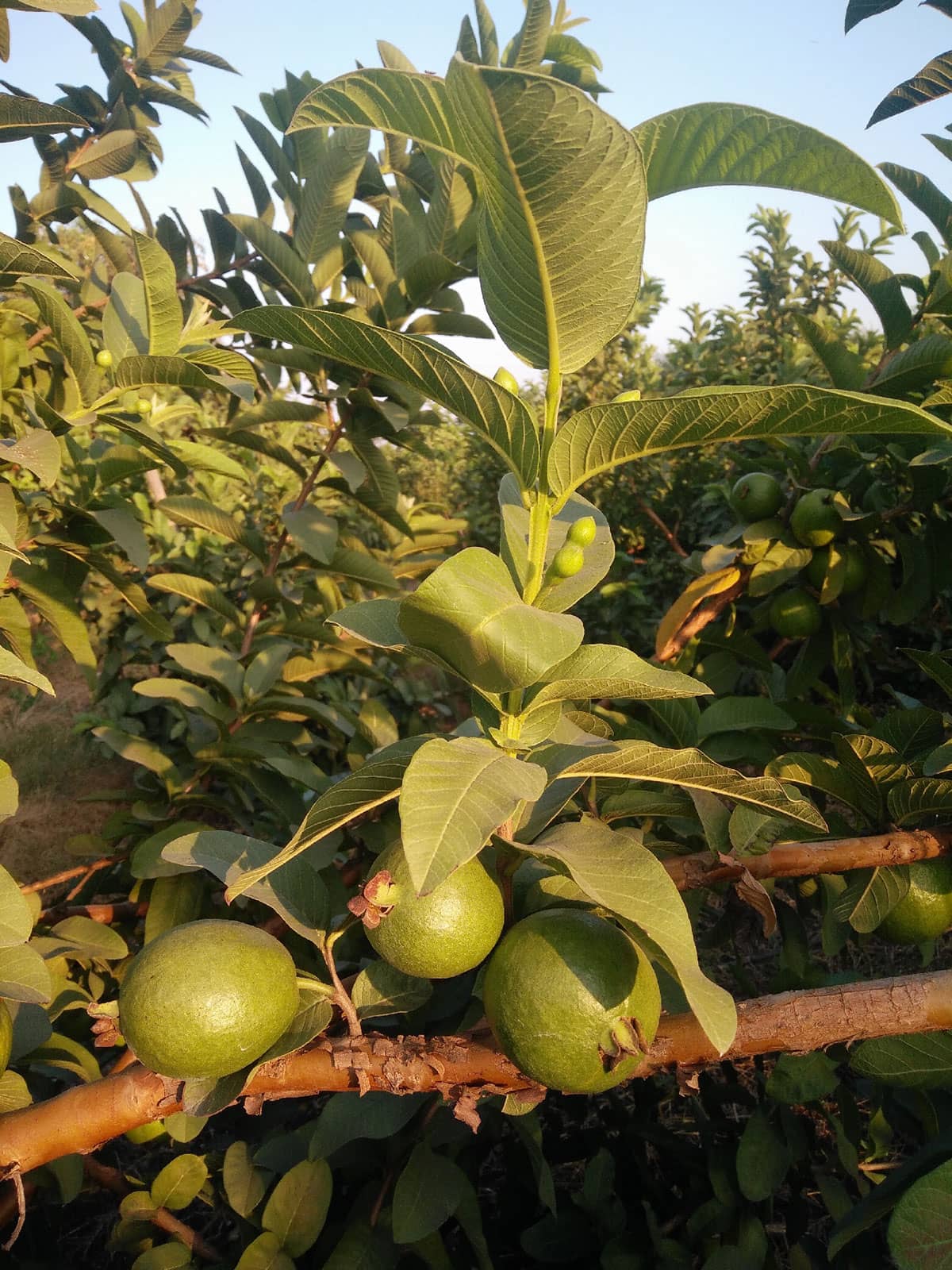Health
4 Benefits of damiana and side effects

Table of Contents
Discover the 4 shocking health benefits of Damiana and side effects.
Damiana (Turnera diffusa) is a shrub with green leaves and yellow petals born in America known as Mexican tea.
Its scientific name is Turnera diffusa, although others prefer to call it turnera, herba de la pastora, Rosemary or oreganillo.
Since ancient times, it has been attributed powers to enhance sexual appetite in men and women.
However, its medicinal capabilities are not limited to that, because it has properties that are beneficial to treat other diseases, would you like to know better the benefits of damiana?
What is damiana for?
Scientific name: Turnera diffusa
Family: Turneraceae
Species: T. diffusa; Willd. ex Schult.
Class: Magnoliopsida
Kingdom: Plantae
Division: Magnoliophyta
Damiana (Turnera diffusa) is rich in bioactive compounds, such as tetraphyllin B, arbutin, flavonoids such as gonzalitosin, and apigenin, it also contains damianin, which is its bitter principle, in addition to caffeine and beta-sitosterol.
Each of these substances gives damiana the attributes for the treatment of various conditions, although its effects on many diseases are under study.
However, many share the view that it imparts benefits, such as those that we will mention now:
Improves sexual activity
Its aphrodisiac gifts lie in flavonoids with anti-aromatase activity, as they help maintain testosterone levels, libido, energy, and muscle mass in mature men.
It stimulates the central nervous system
Its use has been suggested to combat nocturnal enuresis in children, which is often caused by nervous disorders.
On the other hand, it is considered a natural ally to mitigate the nervous states characteristic of perimenopause.
Helps treat gastric problems
It has been customary to use the infusion of damiana leaves to relieve gastric problems.
Its arbutin content, a glycoside with gastroprotective powers, is the main responsible for this characteristic.
Serves to combat fatigue
This prodigious medicinal plant stands out for having stimulating attributes that have been useful in relieving physical and mental fatigue.
Damiana properties
•Known as a virtuous aphrodisiac
•Has diuretic properties
•Considered a cleanser
•Has antiseptic qualities
•May be a laxative
•It is claimed to be a good expectorant
•It is a good stimulant
•Can be used as an energizer
Health benefits of Damiana
Turnera diffusa contains active principles that endow it with medicinal and healing virtues, such as the following:
1. Helps cure infections
Damiana performs a diuretic and antiseptic action, which contributes to the relief of urinary infections, such as cystitis and prostatitis, and is also used to treat the discomfort caused by kidney inflammation.
2. Elevate your spirits
It fulfills a function as a stimulating tonic for the central nervous system, which is why it is indicated to combat mild depressive states, lack of motivation, stress, dejection, and fatigue.
3. Increases sexual potency
Although it has been labeled an aphrodisiac and is presented as an excellent resource for correcting premature ejaculation, erectile dysfunction, and increasing sexual vigor, more conclusive studies are required to substantiate these claims.
4. It is invigorating
One of the most publicized properties of damiana is that it contributes to increasing energy, giving people greater well-being and willingness to perform daily physical activities.
How to use damiana
Due to its wide distribution, today it is not difficult to find damiana in different formats, in dietary centers, or in the pharmaceutical industry.
However, you must remember that although many therapeutic virtues have been attributed to it, they have not yet been scientifically established, so you must be cautious in their use.
Before deciding to include it as a treatment, common sense dictates that the approval of a specialist must be obtained, who will be able to indicate the correct form and dose to use it.
In the market you can get it in drops, tinctures, and capsules, now we will explain the destination that is customary to give each one.
Drops and tinctures.
The liquid extract of damiana is usually used for infusions, it can also be used with water or fruit juice, in the doses indicated on the product. It is claimed to increase sexual desire, as well as, alleviate depressions.
Capsules.
This is one of the most common presentations in pharmacies, and is generally used as an aphrodisiac to increase libido and is prescribed to calm tiredness and fatigue.
Although turnera is often sold as an herbal supplement, caution must be exercised to ensure that it is not contaminated with toxic metals or other drugs.
Therefore, the ideal is to obtain it in pharmacies, as they guarantee the use of reliable products.
Advantages and disadvantages of damiana
Didn’t you find all the applications that are given to this wild shrub interesting? Next, a synthesis of its advantages and disadvantages will be made.
Advantages of damiana
It is used to combat apathy, stress and improve mood.
It has been indicated to overcome not so severe depressive states.
It is considered a stimulant and sexual arousal for both sexes.
It has been useful to treat nocturnal enuresis, in the case of children.
It can help relieve nervous migraines, in combination with other herbs.
Helps fight urinary and kidney infections.
It is suggested to treat asthma and bronchitis.
Disadvantages of damiana
It should be avoided when a person is in conditions of anxiety attacks, suffers from chronic insomnia or tachycardia, as it can exacerbate the symptoms of these diseases.
It is not advisable to associate them with other plants that are stimulants, such as ginseng, Andean maca, coffee, or guarana.
Damiana is contraindicated in the case of pregnant women, lactating women, and children.
Precautions for consuming damiana
Even being a natural remedy, damiana is powerful medicine, due to its chemical components.
For this reason, pregnant women and those who are breastfeeding should refrain from using it, for the reason that it contains active alkaloids.
Along the same lines, damiana is not compatible with anxiolytic, antidepressant, or stimulant medications.
On the other hand, it is good to note that in high doses, this plant acts as a purgative.
Finally, it is good to note that for women with a family history of breast cancer or who have suffered from it, it is not recommended that they use it.
All of the above highlights the need for caution when using damiana, to avoid unpleasant consequences.
Related searches….
Damiana benefits hormones
How long does it take for damiana to work
Damiana for men
Damiana Leaf effects
How long does damiana Stay in your system
Damiana and ashwagandha together
How to use damiana
Health
13 Benefits of sorrel and side effects

Table of Contents
Health
Benefits of hyaluronic acid for acne

- Methods of treatment
- FREQUENT QUESTIONS
- What is the main indication of hyaluronic acid in acne scars?
- When is the effect of hyaluronic acid noticeable?
- How is hyaluronic acid applied?
- How many hyaluronic acid sessions are needed to treat facial acne scars?
- How is the face after doing the filling session?
- Is it a painful procedure?
- Can fillers be combined with other acne scar treatments?
- Is the effect of hyaluronic acid definitive?
Discover the benefits of hyaluronic acid for acne.
In most acne scars there is a loss of skin volume ( atrophy ), which gives the area where they form a depressed or “engraved” appearance.
This atrophy is the product of a lack of hyaluronic acid and collagen in the dermis, the intermediate part of the skin, responsible for giving the turgidity, volume, and elasticity of healthy skin.
Methods of treatment
There are different methods to treat atrophic scars, which we could classify into two different groups according to their speed of action:
· Immediate effect. They are called fillers, biocompatible substances that can be injected into the skin to give volume to areas that have lost it.
Among them, those of hyaluronic acid, polylactic acid, or calcium hydroxyapatite stand out among others. Its turgid effect is immediate, filling cavities, furrows, and atrophic areas of the skin with very natural results. The duration of these materials is limited, so periodically (every 6 – 18 months ) it is common to practice a new session.
· Delayed effect. It implies that they promote the synthesis of collagen and ground substance of the dermis. It is worth mentioning the fractional lasers (ablative or non-ablative) and the intermediate and deep peels.
The main advantage of these methods is that their effect is permanent once the optimal point of improvement has been reached, which is not immediate but after practicing several sessions of the procedure.
Hyaluronic acid is indicated in the treatment of atrophic, depressed, and ice-pick acne scars. There are different densities of hyaluronic acid, designed to treat different forms of atrophy or loss of volume.
For the treatment of moderate or ice pick acne scars, it is useful to use low and intermediate densities; and to recover a large volume in especially atrophic areas, it is possible to use higher densities to cover the maximum repertoire of defects.
The main advantages of using hyaluronic acid lie in its immediate action, its durability, its biocompatibility, and its minimal allergenic potential. This molecule can fill in atrophic scars, providing optimal volume immediately and in the short term, promoting collagen synthesis in the long run.
In this way, the irregularity on the surface of the skin is substantially reduced after the application of hyaluronic acid, improving the overall appearance of the skin in the treated area.
Another positive aspect of using hyaluronic acid is that it usually only requires a single application session. Likewise, fillers are one of the best tolerated aesthetic procedures since they have a minimal rate of adverse effects and the pain caused is minimal if a precise technique is followed. Slight erythema (redness) that lasts 2-4 hours after the procedure is common and can be reduced with the application of cold compresses.
According to studies published by Halachmi et al, the satisfaction rate and results in patients with atrophic acne scars and ice pick treated with hyaluronic acid are excellent.
The only limiting aspect of hyaluronic acid fillers is their duration. This molecule is naturally degraded in the skin, its effect persisting for 6-18 months depending on the density of hyaluronic acid used and the indication for which it has been applied.
Specifically, for acne scars, the duration of hyaluronic acid is the maximum possible, since it is retained within the fibrosis that partitions the scars. It should be remembered that, in the long term, this molecule favors the synthesis of collagen, so that the perceptible effect is progressively more durable as different sessions are carried out.
FREQUENT QUESTIONS
What is the main indication of hyaluronic acid in acne scars?
Its main effect is to fill in depressed scars and regularize the appearance of the skin surface.
When is the effect of hyaluronic acid noticeable?
The effect of hyaluronic acid is immediate and noticeable at the end of its application. Over a week or so, the hyaluronic acid settles in the applied area and the surface where it has been applied progressively becomes even more regular.
How is hyaluronic acid applied?
The procedure is performed in the Dermatology consultation through microinjections applied under the scars to be treated. An anesthetic cream is usually used before the session and it is very tolerable, with minimal discomfort.
How many hyaluronic acid sessions are needed to treat facial acne scars?
In general, if they are not very deep or extensive, one is enough.
How is the face after doing the filling session?
The corrective effect of hyaluronic acid is immediate. At the end of the session, most atrophic and depressed scars have recovered all or part of their lost volume. Immediately after the session, it is usual to see some redness in the treated areas and slight swelling, which usually lasts between 2-4 hours.
It is possible, although infrequent, that during the procedure a minimal punctual hematoma may appear in an injection area, which will disappear spontaneously over a week or so.
Is it a painful procedure?
Filling with hyaluronic acid after application of anesthetic cream is one of the most well-tolerated and appreciated aesthetic procedures, with an excellent satisfaction rate for the patient.
Can fillers be combined with other acne scar treatments?
Yes. They can be used concomitantly with ablative/non-ablative peels or lasers, or even botulinum toxin if desired. It is recommended, yes, to carry them out in different sessions.
Is the effect of hyaluronic acid definitive?
No. Although with each session there is a certain accumulation of the effect due to the collagen synthesis promoted by hyaluronic acid, it is advisable to perform a filler every 6-18 months depending on the indication and the area to be treated.
Health
10 Benefits Of Feijoa Or Pineapple Guava

Table of Contents
- What is feijoa or pineapple guava?
- Knowing the flavor of feijoa
- Nutritional contributions of feijoa.
- 10 health benefits of feijoa.
- How to eat feijoa?
- Discover the 10 Benefits Of Feijoa Or Pineapple Guava.
Feijoa can have a wide range of health effects, including aiding weight loss, improving digestion, lowering cholesterol levels, boosting the immune system, increasing bone strength, lowering blood pressure, optimizing nutrient absorption, balance metabolism, increase circulation, stimulate cognitive function and regulation of blood sugar levels, among other benefits of feijoa.
There are very few reported side effects, although allergies to this fruit do exist, and some reports of gastrointestinal problems and low blood sugar levels have been documented.
That said, for most people who consume this fruit in moderation, it offers far more health benefits than side effects, so there’s no running away from the benefits of feijoa.
What is feijoa or pineapple guava?
Feijoa has another name in many parts of the world: pineapple guava. Scientifically known as Acca sellowiana, the plant that produces this fruit is a shrub or small tree native to regions of South America, such as Argentina, Brazil, and Colombia. It is now widely cultivated for its sweet fruit, as well as for ornamental purposes.
The fruit is green and ellipsoid-shaped and is about the size of a plum or a small avocado.
The unique flavor and impressive supply of nutrients make feijoa highly sought after as it can have many different culinary applications, from an ingredient in smoothies to cocktails, desserts, chutneys, and cooked fruit dishes.
Knowing the flavor of feijoa
Feijoa has a very unique flavor, with sweet, sour, and bitter elements, which many people compare to guavas and pineapples, as its common name implies, but it also has a slight strawberry flavor. In some cultivars, there are very subtle notes of mint, which can increase as the fruit ripens.
To ensure the best flavor and flavor of the feijoa, the fruits should be collected the day they fall from the tree, as this indicates the ideal ripeness.
Before that, the taste is more bitter, while after the fruit falls, it can become too ripe and unpleasant to eat.
Nutritional contributions of feijoa.
Whether you are eating the fruit for its benefits or its exotic flavor, you will benefit from its impressive nutrient content.
The calorie content per serving (100 grams) is just 55, which is unusually low, this tropical fruit also contains significant levels of vitamin C (over 50% of your daily recommendation per serving), as well as a diverse selection of B vitamins. and traces of vitamin E, K, and A.
In terms of mineral content, feijoa contains moderate levels of copper, manganese, magnesium, potassium, iron, and calcium.
A single serving of this fruit also delivers more than 15% of your recommended daily dietary fiber, in addition to various phytochemicals, phenols, and antioxidants.
10 health benefits of feijoa.
People who regularly consume this fruit to make themselves available to the benefits of feijoa will receive health favors related to blood pressure, cholesterol, obesity, immune health, oxidative stress, metabolism, osteoporosis, indigestion, diabetes, circulation, cognitive function, and nutritional deficiencies.
1.- Increase immunity
With a strong supply of vitamins and minerals in the fruit, the benefits of feijoa allow regular consumption to give your immune system a much-needed boost.
Vitamin C can stimulate the production of white blood cells, the body’s first line of defense, while also acting as an antioxidant to search for free radicals; a single serving of pineapple guava has more than 50% of your recommended daily vitamin C.
2.- Regulates blood pressure
Potassium-rich foods are important for people who suffer from high blood pressure and therefore are at high risk for cardiovascular disease, atherosclerosis, and stroke.
Potassium is a vasodilator, which means that it can reduce stress on blood vessels and arteries, and generally relieve stress on the cardiovascular system.
3.- Digestion AIDS
High levels of dietary fiber (about 17% of your recommended daily fiber per serving) mean that this fruit is capable of optimizing digestion by stimulating peristaltic movement and enhancing nutrient absorption.
This can help ease symptoms of indigestion, constipation, bloating, cramps, and a general upset stomach.
4.- Reduces cholesterol
In addition to improving digestion, dietary fiber is also directly linked to lower cholesterol levels, particularly “bad” cholesterol, which can increase your risk of heart disease.
By removing this cholesterol from the arteries and blood vessels, it lowers the risk of blood clots, heart attacks, and strokes.
5.- Improve Cognition
The antioxidants present in feijoa have been associated with increased memory and retention, better focus, and a lower risk of neurodegenerative diseases, such as mental illnesses such as Alzheimer’s and dementia; antioxidants can seek out and neutralize free radicals in neural pathways before they can cause plaque buildup.
6.- Increases metabolism
The B vitamins are incredibly important for the overall functioning of the body, especially when it comes to metabolic activities such as the synthesis of proteins and red blood cells, the production of hormones, the stimulation of the functioning of the nervous system, and the generation of energy within cells. . Fortunately, feijoa benefits from moderate levels of numerous B vitamins.
7.- Improves bone strength
With significant levels of manganese, copper, iron, calcium, and potassium, this tropical fruit is very effective in increasing bone mineral density and helping prevent the onset of osteoporosis as you age. This can increase your energy levels and keep you more active and capable in your later years.
8.- Control diabetes
Research has shown that eating feijoa can help regulate blood sugar levels, due to its low level of calories and carbohydrates, which can help regulate the body’s production and release of insulin.
9.- Increase circulation
Although there is a relatively small amount of iron present in feijoa, it can still aid red blood cell production and circulation, while the metabolic boost from vitamin B can also stimulate blood flow. This means greater oxygenation in critical areas of the body and higher energy levels.
10.- Promotes weight loss
There are only 55 calories in a 100 gram serving of the feijoa, but plenty of dietary fiber and nutrients. Combined with the low level of carbohydrates, this means that the body will feel full and access a significant supply of nutrients without adding too many calories or sugar to your daily intake. This can have a positive impact on weight loss goals and avoid overeating or snacking between meals.
How to eat feijoa?
The skin of the pineapple feijoa or guava fruit is edible, but many people prefer to cut the fruit in half, such as avocado, remove the seeds, and then scoop out the soft, sweet pulp with a spoon. However, simply slicing the fruit, without removing the skin, can deliver even more dietary fiber.
The bitter taste mainly occurs near the skin of the fruit, so if you want a sweeter snack, remove the skin entirely. The fruit is at ideal maturity when the pulp of the seed is completely clear.
As this fruit tends to ripen very quickly, there may be some brown or discoloration near the center, but this does not mean that the fruit is rotten and that the creamy flesh is perfectly safe to eat.
Avoid eating pineapple guavas that are more than half golden on the inside, as they may have started to go bad.
-

 Food1 year ago
Food1 year ago10 + Benefits of carrot juice and side effects
-

 Benefits4 months ago
Benefits4 months agoThe Benefits of Joining Gym Lumolog – Improve Your Fitness & Health
-

 Health1 year ago
Health1 year ago50 Super Healthy (And Very Often Cheap) Foods
-

 Health1 year ago
Health1 year ago5 Shocking health benefits of kinkeliba and side effects
-

 Food1 year ago
Food1 year ago8 shocking benefits of leek juice and side effects
-

 Health1 year ago
Health1 year agoBenefits of guava leaves Sensually
-

 Weight Loss1 year ago
Weight Loss1 year agoChaz Bono weight loss secret
-

 Health1 year ago
Health1 year ago13 shocking health benefits of Thai eggplant












